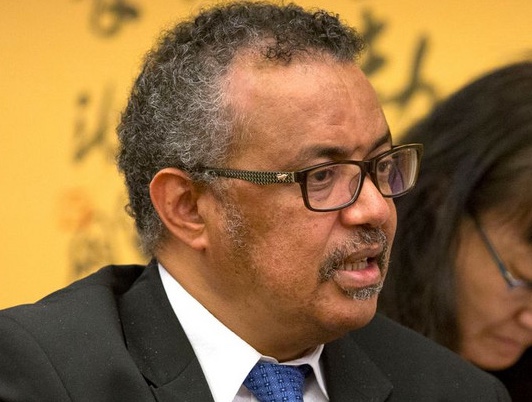The World Health Organization announced Monday a “temporary pause” on the inclusion of an anti-malarial drug.
WHO director-general Tedros Adhanom Ghebreyesus said in a news conference that the executive group overseeing the organization’s “Solidarity” trial of experimental treatments decided Saturday to suspend the use hydroxychloroquine in light a study published in The Lancet that found a lower survival rate among hospitalized COVID-19 patients using the drug.
The trial’s steering committee will use the pause to allow the Data Safety Monitoring Board to conduct a review and appraisal of “all evidence available globally” to “adequately evaluate the potential benefits and harms from this drug,” Tedros said.
Hydroxychloroquine was one of four drugs and drug combinations included in the Solidarity trial, which has enrolled more than 3,500 patients in 17 countries, according to Tedros. Other potential treatments, including the experimental drug remdesivir and an HIV combination therapy, are still being tested.
“We want to use hydroxychloroquine if it is safe and efficacious, if it reduces mortality, reduces the length of hospitalization, without increasing the adverse events,” said Dr. Soumya Swaminathan, WHO’s chief scientist. Swaminathan said she expected the Solidarity trial’s steering committee to review the Data Safety Monitoring Board’s findings within the next two weeks.
Dr. Michael Ryan, WHO’s emergencies chief, said the pause was “standard practice” and that if the review does not find any problems, the use of the drug in the solidarity trial would resume.
“This has purely been done as a precaution in order to be able to have that data reviewed and have the proper process,” Ryan said.
Hydroxychloroquine and chloroquine are approved for treating lupus and rheumatoid arthritis and for preventing and treating malaria, but no large rigorous tests have found them safe or effective for preventing or treating COVID-19.
























Leave a comment